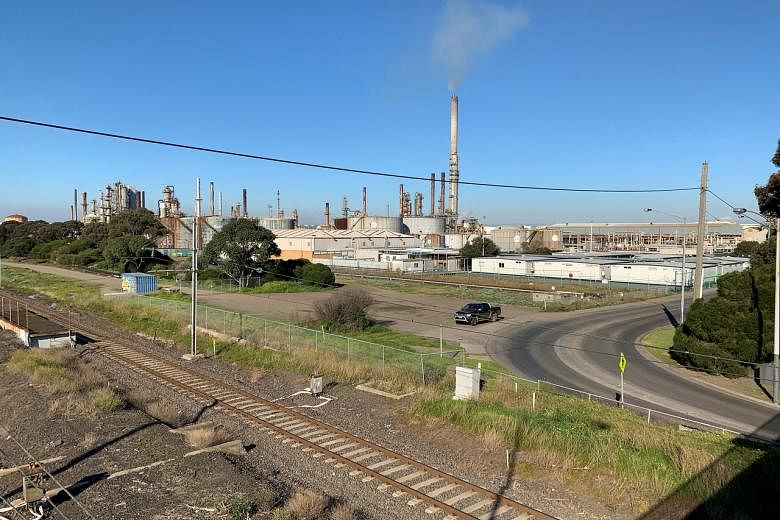SYDNEY/MELBOURNE (REUTERS) - Australia could beat its target for cutting carbon emissions under the Paris accord by 2030 without counting credits from overachieving on its targets in previous climate pacts, Energy Minister Angus Taylor said on Thursday (Dec 10).
The latest projection marked a sharp shift for one of the world's biggest emitters per capita and came ahead of the United Nation's Climate Ambition Summit on Saturday, the fifth anniversary of the 2015 Paris climate agreement.
Australia's policy of using old carbon credits to count toward future emissions targets was a major sticking point at the UN climate summit a year ago when big emitters were pushed to take more aggressive action to curb global warming.
The UN and Britain are jointly hosting the online summit on Saturday to push countries to upgrade their emissions-cutting pledges to help limit a rise in global temperatures to 1.5 deg C.
Australia's emissions are now projected to be 29 per cent below 2005 levels by 2030 compared with its Paris accord target of cutting carbon emissions by 26 per cent to 28 per cent, based on what could be achieved under a A$18 billion (S$17.92 billion) technology investment plan the government outlined in September.
"When we make commitments, we meet them. We have a clear plan to meet and beat our 2030 target and the updated projections reflect Australia's strong performance," Mr Taylor said in a statement.
Australia, the world's top coal and liquefied natural gas exporter, now expects its emissions to fall to 436 million tonnes of carbon dioxide-equivalent in 2030, under the technology roadmap assumptions.
The conservative government's position has shifted over the past year as Prime Minister Scott Morrison has moved to promote natural gas, carbon capture and green hydrogen in a transition toward cleaner energy.
Green groups, pushing Australia to take more ambitious steps to wean itself off fossil fuels, especially in the wake of devastating bushfires last summer, were sceptical of the projections.
"The situation is critical, and we don't have time to waste on risky, unproven technologies," Greenpeace Australia Pacific CEO David Ritter said in a statement.

